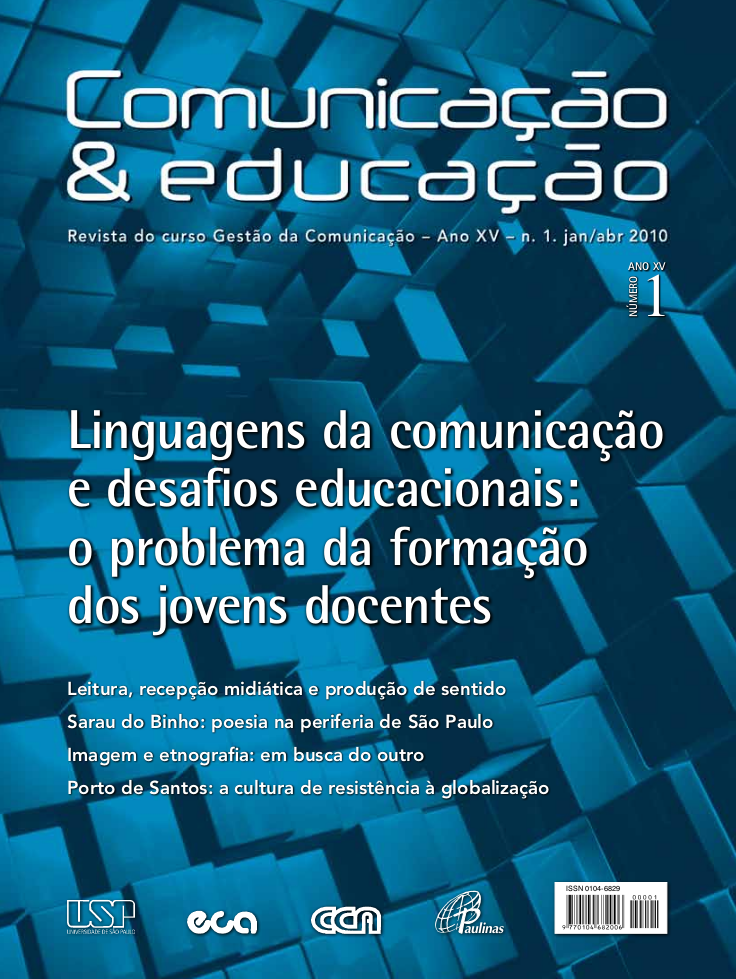Theater, communication, pedagogy: notes on Brecht
DOI:
https://doi.org/10.11606/issn.2316-9125.v15i1p35-44Keywords:
Weimar Republic, Picastor, political theater, communication, interactivity.Abstract
The immediate consequence of Russian Revolution on German intellectuals in Weimar Republic (1919‑1933) was the politicization of art. In this climate, Brecht approaches to the political theater of Picastor and writes didactic plays. Thereafter, the trajectory of Brecht is marked by the pursuit of an interactive communicationand by the defense of pedagogical function of art. The reflections on the role of art are contemporary to the radio theory, the emerging of labour press and the cinematographic experiments. It is within this general framework we can understand Brecht’s theatrical proposals.
Downloads
Downloads
Published
Issue
Section
License
I authorize the publication of the submitted article and soon the copyrights to the magazine, in the printed and electronic version, if it is approved after the evaluation of the reviewers.
I understand that readers may use this article without prior request, provided the source and authorship are mentioned. Readers are not authorized to use this article for reproduction, in whole or in part, for commercial purposes.

































